- We offer specialized assistance care to children and young people with autism and their families
- We offer specialized assistance care to children and young people with autism and their families
- CEPIA psychoeducational program, in context and school hours
- Diagnosis and evaluation
- Therapies (communication, occupational, and psych pedagogy)
- Workshops for parents
- CEPIA psychoeducational program, in context and school hours
- Diagnosis and evaluation
- Therapies (communication, occupational, and psych pedagogy)
- Workshops for parents
- We provide professionals, parents, family members, and educational institutions with training and education in the care of people with autism and the integration of neurodiversity
- Online Courses
- Forum Chats
- Diploma
- Specialization
- Integration program from autism
- We provide professionals, parents, family members, and educational institutions with training and education in the care of people with autism and the integration of neurodiversity
- Online Courses
- Forum Chats
- Diploma
- Specialization
- Integration program from autism
- We develop initiative to raise societal awareness to promote an inclusive and empathetic culture:
- We develop initiative to raise societal awareness to promote an inclusive and empathetic culture:
- Even development
- Participation in awareness-raising spaces
- Even development
- Participation in awareness-raising spaces
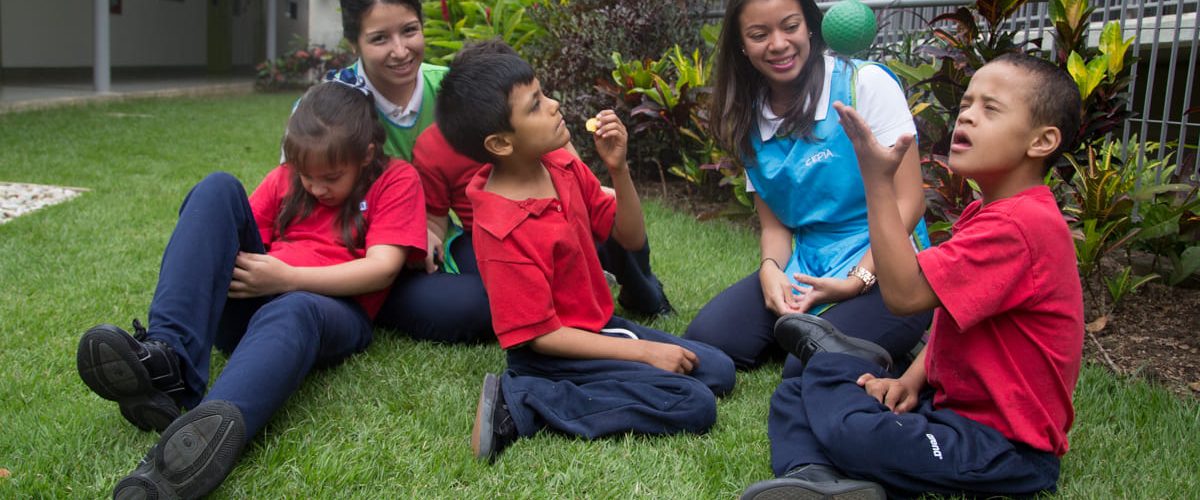
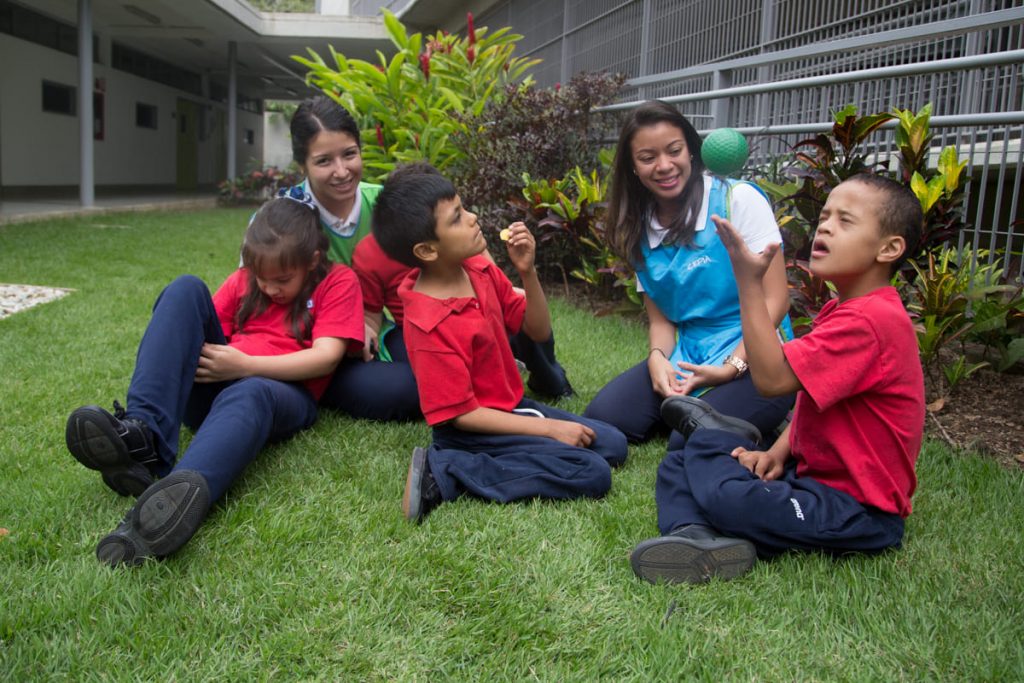
Regarding Autism
Autism is a complex neurobiological disorder, also called “autism spectrum disorder” (ASD). This means that it affects each person in a particular manner and can be present in a very light to very severe form.
Autism impacts development in areas related to social interaction and communication skills, and typically lasts throughout their entire life.
Children and adults with autism face particular challenges in order to make sense of the information that reaches them through their senses, organize themselves, understand and use the language to communicate, and to socially relate with other persons. As a consequence, they experience great difficulty in-those different environments, as in their progress with conventional teaching methods.
Albeit autism affects everyone in a different manner, and symptoms vary from one person to another, most people with autism don’t have the same mechanisms for learning as those whose development progresses according to their age; that is, observing and imitating what they hear and see in others, see doing and saying. Hence, these persons must ‘learn to learn’ in order to communicate, behave and play.
With an adequate diagnosis and intervention, the person can achieve the development of skills that will benefit the quality of his life.



children
children
Prevalence (Cases)
Source: U.S Centers for Disease Control and Prevention – ADDM network
Alarm signals

At the age of 6 months, the baby doesn’t smile at people or shows affection.

At the age of 12 months, doesn’t gesticulate when asking for something. Example: stretching arms when wanting to be picked up, or waving ‘goodbye’.

At the age of 16 months, doesn’t use specific words for being understood. Example: water.

At the age of 24 months, doesn’t use short phrases of two words. Example: Want cookie.

Avoids looking at people in the eye; prefers playing alone.

Doesn’t show interest in a specific object or particular toy.


Doesn’t react to certain sounds, voices or when called by the name.

Looses and ability that the child previously had.
The signals are risk indicators of the autism spectrum disorder.
It is important to note that the presence of some of these traits does not automatically imply a diagnosis of autism.
What it does suggest is a risk alert and that the person should undergo a specialized evaluation.
If you feel you need a specialized evaluation
For more information we suggest you visit the following page, Centers for the Control and Prevention of Illnesses: https://www.cdc.gov/ncbddd/spanish/autism/index.html
For more information we suggest you visit the following page, Centers for the Control and Prevention of Illnesses: https://www.cdc.gov/ncbddd/spanish/autism/index.html
10 things a child with autism would like you to know

I am, first and foremost, a child with autism. Not an “autistic”.

My sensory perceptions
are in disarray.
My sensory perceptions are in
disarray.

Please remember to distinguish between, I won’t (I decide not to do it), and I can’t (I can’t do it).

I am a precise thinker. This means I interpret language literally.

Please be patient with my limited vocabulary.

Since language is so difficult for me, I am more oriented towards the visual.

Please focus and build on what I can do instead of what I can’t.

Help me to socially interact.

Try to identify what sets off my meltdown.

If you are a loved one, please love me unconditionally.
Source: “Ten things a child with autism wishes you knew” de Ellen Notbohm (2005)
Specialized Assistance
At Fundación Autismo en Voz Alta we offer a person with autism the opportunity to receive the education
he/she is entitled to, promoting the commitment and engagement of the family, regardless
of the socioeconomic status of those who seek it.
In this sense, once the person is admitted in the program, the students can apply for our scholarship program,
and each family makes the best possible effort to contribute to the education of its representative.
At Fundación Autismo en Voz Alta we offer a person with autism the opportunity to receive the education he/she is entitled to, promoting the commitment and engagement of the family, regardless of the socioeconomic status of those who seek it.
In this sense, once the person is admitted in the program, the students can apply for our scholarship program, and each family makes the best possible effort to contribute to the education of its representative.
CEPIA Psycho-educational Program
Our psycho-educational program for the development of skills is available during school hours to children between the ages of 3 and 18.
The classrooms of 9 students each, are grouped according to the functioning and development level of the child or adolescent; a curriculum of skills and abilities based on an Individualized Teaching Program (PEI) is taught, developed for each child according to his/her needs and those of the family.
The structure, space, colors, materials and equipment are specifically designed for the needs and necessities of the persons with autism.
Our psycho-educational program for the development of skills is available during school hours to children between the ages of 3 and 18.
The classrooms of 9 students each, are grouped according to the functioning and development level of the child or adolescent; a curriculum of skills and abilities based on an Individualized Teaching Program (PEI) is taught, developed for each child according to his/her needs and those of the family.
The structure, space, colors, materials and equipment are specifically designed for the needs and necessities of the persons with autism.
Diagnosis and evaluation
Autism spectrum disorders can be difficult to diagnose, because there are no medical tests, such as blood tests, to diagnose them. It is diagnosed with the help of specialists by means of observing the behavior of the person.
At Autismo en Voz Alta we understand that an early diagnosis and evaluation is key in determining and defining the educational and assistance person with autism needs. We understand what it means for a family to receive a diagnosis of autism.
Our diagnosis and evaluation consulting services are carried out by trained psychologists, with experience in diagnosis and evaluation of people with autism.
- We write and present a report regarding all the diagnostic areas and we talk about them with the representatives, as well as with the person with autism, if the child’s functioning and development level permits it.
- We offer recommendations and suggestions for the treatment of the person with autism outside and at home.
Therapies
At Autismo en Voz Alta, we offer individual and/or group therapies for the focalized development of skills and abilities to behaviors that might hinder the learning capacity.
- The therapies in psychopedagogy, occupational therapy, and communication are taught by specialists in the evening.
- We define the duration and frequency of the therapies based on an evaluation of the skills and abilities of the person with autism carried out at the institution.
- We do periodic progress evaluations that are discussed with the representatives make any necessary adjustments.
Psychological Guidance
Our psychological counseling sessions offer individualized guidance and support for people with autism and/or their families. They are sessions taught by a specialist who offers suggestions and advice tailored to the realities and circumstances of the person with autism.
Workshops for parents
We develop and offer workshops (theoretical and practical) for parents and representatives with the skills and expertise that make it easier for them to support and accompany their clients in different areas.
Training and education
At the Autismo en Voz Alta Foundation, we promote inclusive learning environments in Venezuela and the development of capabilities in teachers and professionals.
In this sense, we respond explicitly to the critical need for training and education in autism care in Venezuela and the integration of neurodiversity in educational institutions.
Online Courses
We offer five (5) online courses aimed at parents, caregivers, students, professionals, and tutors who want to train in the care of people with autism:
- Course 1 – Learning about autism
- Course 2 – Autism intervention
- Course 3 – School integration and autism
- Course 4 – Challenges in school integration and autism
- Course 5 – Certification – School Tutor for children with autism
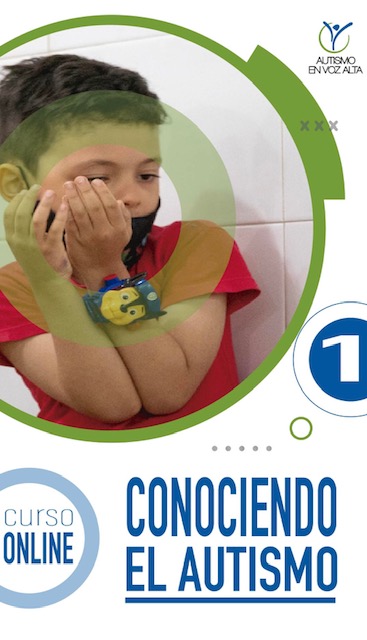
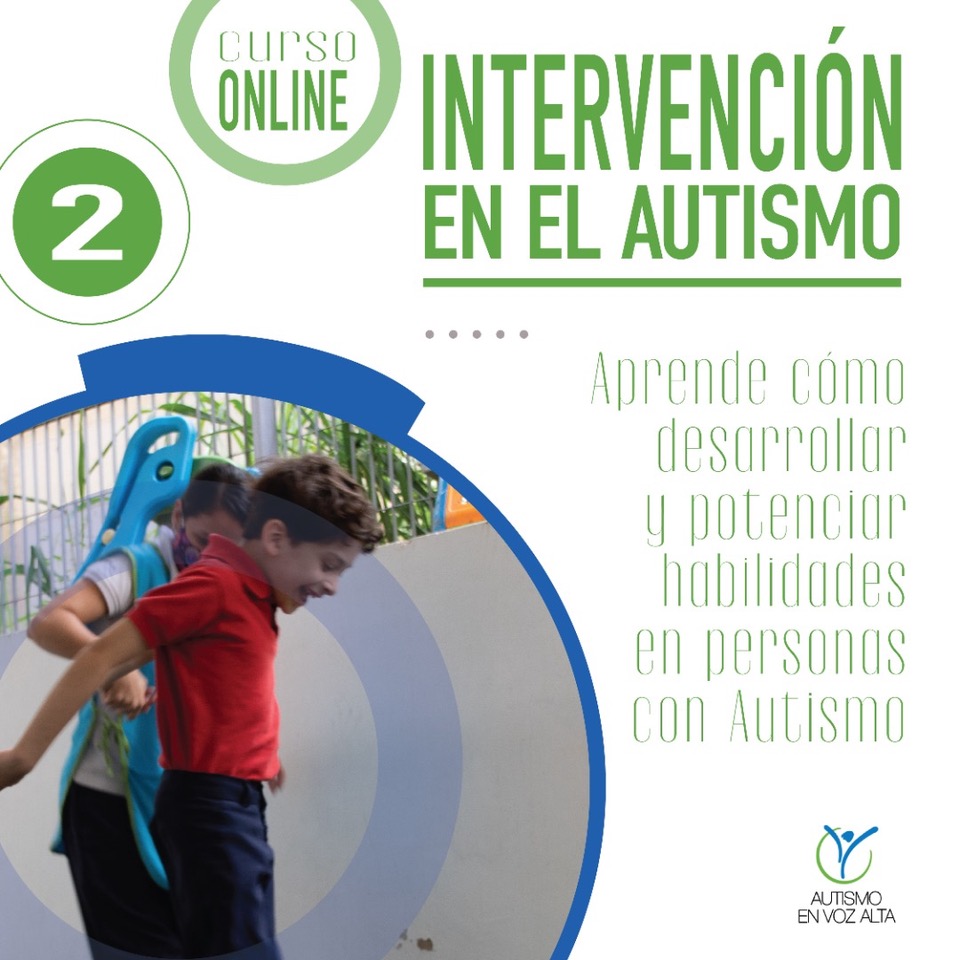
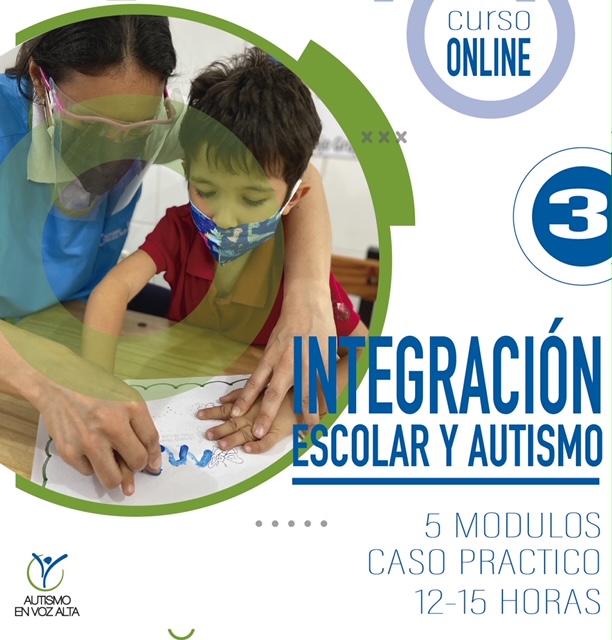
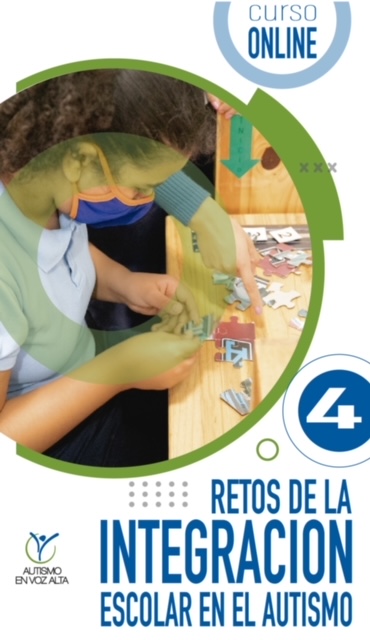
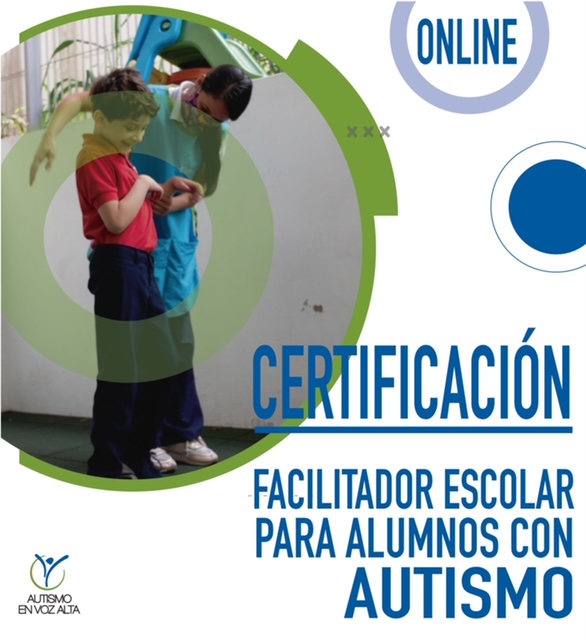
Forum – Chats
We offer discussion and exchange forums to respond to the information needs of parents, representatives, and professionals.
Forum chats are offered quarterly. The topics are chosen according to the community’s concerns and prepared internally by our specialists.
We offer discussion and exchange forums to respond to the information needs of parents, representatives, and professionals.
Forum chats are offered quarterly. The topics are chosen according to the community’s concerns and prepared internally by our specialists.
We create the necessary awareness in order to eliminate barriers and limitations imposed by the lack of knowledge regarding the available alternatives and options.
Specialization and Diploma
We offer a diploma and a specialization in alliance with the Monteávila University designed and taught by the CEPIA Team. Professionals from various areas have graduated in both modalities, such as special education, comprehensive education, preschool, speech therapy, occupational therapy, psychology, medicine, nutrition, and dietetics, among others.
We offer a diploma and a specialization in alliance with the Monteávila University designed and taught by the CEPIA Team. Professionals from various areas have graduated in both modalities, such as special education, comprehensive education, preschool, speech therapy, occupational therapy, psychology, medicine, nutrition, and dietetics, among others.
- We have offered the diploma in the interior of the country since 2008 and in Caracas since 2009. It lasts one semester and can serve 36 students
- The specialization, lasting three semesters, began in October 2011.
Integration Program from Autism
Through this program, which is aimed at educational institutions, we raise awareness and empower educators to manage neuro-diverse classrooms from a human perspective and through their teaching actions.
This promotes and facilitates the integration of autism and other neurodiversity and contributes to adopting inclusive policies and practices and strengthening an inclusive culture.
Through this program, which is aimed at educational institutions, we raise awareness and empower educators to manage neuro-diverse classrooms from a human perspective and through their teaching actions.
This promotes and facilitates the integration of autism and other neurodiversity and contributes to adopting inclusive policies and practices and strengthening an inclusive culture.
- We have offered the diploma in the interior of the country since 2008 and in Caracas since 2009. It lasts one semester and can serve 36 students
- The specialization, lasting three semesters, began in October 2011.
Awareness
At the Autismo en Voz Alta Foundation, we develop initiatives to raise awareness about autism and promote an inclusive and empathetic culture.
Contact us to explore opportunities to work together:
– Event development
– Participation in awareness-raising spaces
At the Autismo en Voz Alta Foundation, we develop initiatives to raise awareness about autism and promote an inclusive and empathetic culture.
Contact us to explore opportunities to work together:
– Event development
– Participation in awareness-raising
